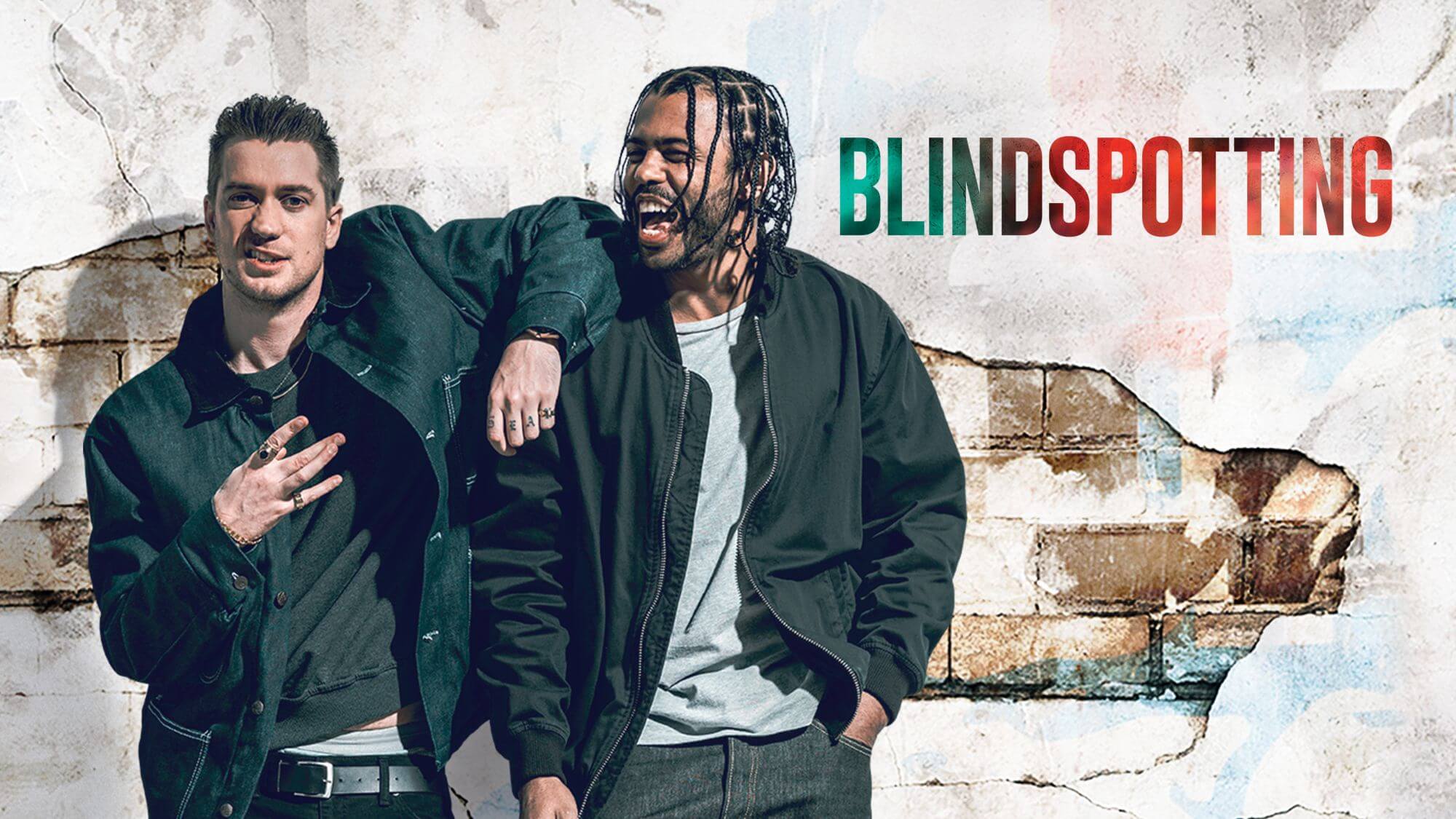
Blindspotting, the critically acclaimed 2018 film directed by Carlos López Estrada, took the cinematic world by storm with its thought-provoking storyline and outstanding performances. Set in Oakland, California, the movie follows the life of Collin, played by Daveed Diggs, during his final three days of probation. As Collin navigates the complexities of race, gentrification, and identity, the audience is taken on an emotional and introspective journey. Blindspotting sheds light on the issues of police violence and systemic racism, presenting them in a raw and gripping manner. With its innovative blend of comedy, drama, and spoken-word poetry, the film not only entertains but also challenges societal norms and paves the way for important conversations. In this article, we will delve into 45 fascinating facts about Blindspotting, unraveling the hidden gems and behind-the-scenes details that make this movie a true masterpiece.
Key Takeaways:
- Blindspotting” is a powerful movie that tackles important social issues like race and identity, while also delivering a unique blend of humor and drama.
- The film’s thought-provoking narrative and exceptional performances have earned it critical acclaim, sparking important conversations about empathy, justice, and community.
Blindspotting is a 2018 American comedy-drama film.
Blindspotting takes place in Oakland, California and follows the story of Collin, a parolee who witnesses a police shooting.
The film was directed by Carlos López Estrada.
Carlos López Estrada made his feature film directorial debut with Blindspotting.
The screenplay was written by Rafael Casal and Daveed Diggs.
Rafael Casal and Daveed Diggs, who also star in the film, co-wrote the screenplay.
The film premiered at the 2018 Sundance Film Festival.
Blindspotting received critical acclaim after its premiere at the prestigious Sundance Film Festival.
The movie tackles themes of race, identity, and gentrification.
Blindspotting delves into hard-hitting issues such as racial tensions, personal identity, and the effects of gentrification in urban communities.
The film received a standing ovation at its Sundance screening.
The powerful storytelling and performances in Blindspotting moved audiences at the Sundance Film Festival, earning it a standing ovation.
The primary cast includes Daveed Diggs and Rafael Casal.
Daveed Diggs, known for his role in the musical Hamilton, and Rafael Casal deliver incredible performances as the film’s leads.
Blindspotting has a unique blend of comedy and drama.
The film seamlessly combines moments of humor and raw emotion, making it a compelling cinematic experience.
The movie highlights the complexities of friendships and loyalty.
Blindspotting explores the challenges of maintaining loyalty and the impact it has on personal relationships.
The soundtrack of Blindspotting features original songs.
The film’s soundtrack includes original songs performed by Daveed Diggs and Rafael Casal, adding another layer to the storytelling.
Blindspotting has a runtime of 95 minutes.
The film’s concise runtime allows for a fast-paced and intense storytelling experience.
The movie received numerous award nominations.
Blindspotting was recognized by various award organizations, receiving nominations for its exceptional screenplay, performances, and direction.
The film explores the concept of “blind spots” in society.
Blindspotting sheds light on the hidden biases and prejudices that exist within individuals and communities.
The characters in the movie are relatable and well-developed.
The film succeeds in creating fully fleshed-out characters that the audience can connect with on an emotional level.
Blindspotting encourages dialogue and reflection on social issues.
Through its thought-provoking narrative, the film prompts discussions about important social issues and the need for change.
The cinematography of Blindspotting is visually striking.
The film’s cinematography showcases the vibrancy and diversity of Oakland, capturing the essence of the city.
Blindspotting challenges societal stereotypes.
The movie challenges preconceived notions and stereotypes by presenting multidimensional characters with complex backgrounds.
The film’s title reflects the idea of overlooked perspectives.
“Blindspotting” refers to the act of disregarding or not fully acknowledging certain viewpoints, an important theme within the movie.
The screenplay for Blindspotting took over ten years to develop.
Rafael Casal and Daveed Diggs spent a decade refining the screenplay, ensuring that every aspect of the story was carefully crafted.
The movie features powerful and thought-provoking monologues.
The script includes impactful monologues that deliver poignant messages and capture the essence of the characters’ experiences.
Blindspotting received positive reviews from critics.
The film was praised for its bold storytelling, compelling performances, and its ability to tackle important social issues.
The movie’s release was preceded by a successful marketing campaign.
The promotional efforts leading up to the release of Blindspotting generated significant buzz and anticipation among audiences.
Blindspotting has gained a loyal and dedicated fan base.
The film has resonated with viewers around the world, inspiring discussions and garnering a passionate following.
The movie includes impactful visual symbolism.
The filmmakers use visual imagery to convey deeper meanings and enhance the thematic elements of the story.
Blindspotting was praised for its authentic portrayal of Oakland.
The film captures the unique spirit and cultural nuances of Oakland, providing a genuine representation of the city.
The film’s dialogue is sharp and memorable.
The script is filled with witty and memorable lines that contribute to the overall impact of the film.
Blindspotting explores the concept of cultural appropriation.
The film addresses the issue of cultural appropriation and its effects on marginalized communities.
The movie is an important contribution to contemporary cinema.
Blindspotting stands out as a powerful and thought-provoking film that adds a fresh perspective to the cinematic landscape.
Blindspotting is visually stunning.
The film’s vibrant color palette and stunning cinematography create a visually captivating experience for the audience.
The movie portrays the struggles of transitioning from prison to freedom.
Blindspotting shines a spotlight on the challenges faced by individuals reintegrating into society after serving time in prison.
The film incorporates elements of spoken word poetry.
The characters express themselves through spoken word performances, adding depth and creativity to the storytelling.
Blindspotting explores the impact of systemic racism on communities.
The film sheds light on how systemic racism perpetuates inequality and affects the lives of individuals and communities.
The film’s editing is seamless and enhances the narrative flow.
The editing of the film contributes to its overall cohesiveness and effectively conveys the emotional journey of the characters.
Blindspotting has a powerful and thought-provoking ending.
The ending of the film leaves a lasting impact, prompting reflection and discussion among viewers.
The movie features exceptional performances from the entire cast.
In addition to the outstanding performances of Daveed Diggs and Rafael Casal, the entire cast delivers powerful and nuanced portrayals.
The film’s screenplay incorporates elements of humor to address serious issues.
Blindspotting skillfully weaves humor into its narrative to address complex and challenging subjects.
Blindspotting received numerous accolades for its screenplay.
The screenplay of the film was recognized with several prestigious awards and nominations in recognition of its quality.
The movie establishes a strong sense of place and atmosphere.
Blindspotting immerses viewers in the distinct world of Oakland, creating an authentic and immersive cinematic experience.
The film premiered to a standing ovation at SXSW.
Blindspotting continued to receive accolades after its premiere at the SXSW Film Festival, further solidifying its impact.
The movie’s character dynamics are complex and layered.
The interactions between the characters in Blindspotting reveal the complexities of their relationships and the obstacles they face.
Blindspotting explores the importance of empathy and understanding.
The film emphasizes the need for empathy and understanding in bridging the gaps between different communities and perspectives.
The movie is a powerful commentary on the criminal justice system.
Blindspotting sheds light on the flaws and prejudices within the criminal justice system and its impact on marginalized communities.
The film’s title has multiple meanings within the narrative.
“Blindspotting” serves as a metaphorical representation of various themes explored throughout the film, adding depth to the story.
Blindspotting forces viewers to confront uncomfortable truths.
The film challenges societal norms and prompts viewers to reflect on their own biases and blind spots.
The movie’s ending leaves room for interpretation and discussion.
Blindspotting’s open-ended conclusion encourages viewers to engage in dialogue and reflect on the issues presented in the film.
Conclusion
In conclusion, Blindspotting is a fascinating film that tackles important themes such as race, identity, and gentrification. It takes viewers on an emotional journey through the eyes of its complex and relatable characters. With a gripping story, powerful performances, and thought-provoking social commentary, Blindspotting is a must-watch for anyone seeking a thought-provoking and impactful cinematic experience.
FAQs
Q: What is Blindspotting about?
A: Blindspotting is a movie that follows the story of Collin, a young black man, who witnesses a police shooting. The film explores themes of race, identity, and the effects of gentrification.
Q: Who directed Blindspotting?
A: Blindspotting was directed by Carlos López Estrada, known for his work in music videos and short films.
Q: When was Blindspotting released?
A: Blindspotting was released in 2018, and quickly gained critical acclaim for its powerful storytelling and performances.
Q: Who are the main stars of Blindspotting?
A: The main stars of Blindspotting are Daveed Diggs, who plays the role of Collin, and Rafael Casal, who plays the role of Miles. Both actors deliver stellar performances that leave a lasting impact.
Q: Where was the movie Blindspotting filmed?
A: The movie Blindspotting was predominantly filmed in Oakland, California, which adds to the authenticity and rawness of the story.
Q: Is Blindspotting based on a true story?
A: No, Blindspotting is not based on a true story. However, it does draw inspiration from real-life social issues and experiences.
Q: Does Blindspotting have any awards or nominations?
A: Yes, Blindspotting received critical acclaim and was nominated for various awards, including several Independent Spirit Awards and NAACP Image Awards.
Q: Is Blindspotting suitable for all audiences?
A: Blindspotting tackles mature themes and contains strong language, making it more suitable for mature audiences.
Q: Can Blindspotting spark meaningful discussions?
A: Absolutely! Blindspotting explores relevant societal issues, making it a great catalyst for thought-provoking conversations about race, gentrification, and identity.
Was this page helpful?
Our commitment to delivering trustworthy and engaging content is at the heart of what we do. Each fact on our site is contributed by real users like you, bringing a wealth of diverse insights and information. To ensure the highest standards of accuracy and reliability, our dedicated editors meticulously review each submission. This process guarantees that the facts we share are not only fascinating but also credible. Trust in our commitment to quality and authenticity as you explore and learn with us.


